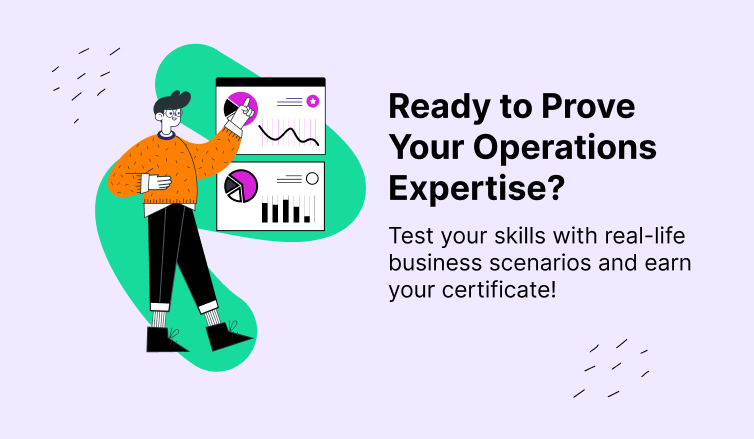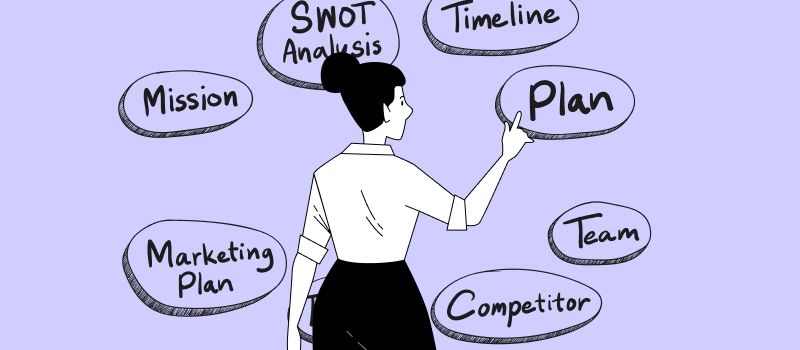
The more AI technologies develop their presence in different market industries, the more project managers find themselves at an extremely important juncture of human expertise and machine-generated data.
Gartner estimated that AI would perform up to 80 percent of the tasks related to project management by 2030.
But what does that mean in reality? In this blog post, we’ll look at the benefits and challenges project managers face in the AI era, as well as the evolving nature of their role.
Benefits and Challenges for Project Managers in the AI Age
Decision-Making
AI can process large volumes of data from many sources both faster and more accurately, than humans, so project managers get insight they never had before and the information they need to make decisions on scope changes, resource re-allocations or task prioritisation.
But AI only works in decision making if it’s analysing the best data. Bad or incomplete data = bad insights and bad outcomes.
For example, if a company uses an AI tool to optimise resource allocation the algorithm will analyse historical data, employee performance metrics and workload to decide how to distribute team members, budget time etc across various ongoing and upcoming projects. Sounds logical right?
But the system trained on historical data that reflects past successes and failures is biased and will favour some teams or departments over others based on previous performance metrics.
Where one department consistently got more resources because of past successes (even if those were due to external factors) the AI will continue to allocate the same resources to that department, ignoring other teams that may have new ideas or potential.
And the AI will distribute resources based only on quantitative data and not on qualitative factors like team morale, interpersonal relationships or potential conflicts.
That’s why project managers should not rely fully on machine suggested recommendations over their own experience and intuition.
Every single project is unique in terms of objectives, constraints, stakeholders and resources – all that the AI cannot see.
Understanding those specifics and living with ambiguity and uncertainty has always been and will be the key to making good decisions.
Performance Management
Manual reporting, monitoring and reviews are known to delay performance issues being detected especially for projects where requirements are changing and new issues pop up unexpectedly.
AI can send an alert to managers for example when a project is delayed during certain phase of its execution cycle.
Besides that, AI based solutions collect performance data including peer reviews and employee contributions.
For example AI in platforms like Slack or Microsoft Teams can identify when conversations include feedback or recognition. This can then be fed into a performance management platform that provides recommendations for each employee.
Yet, for some reason, 81% of employees report that AI monitoring makes them feel like they’re being watched inappropriately.
Understanding these concerns is thus crucial for any organization that aspires to create a positive work environment.
Leslie Hammer, a professor at Oregon Health & Science University and co-director of the Oregon Healthy Workforce Center, told the APA: “When employees feel they are not cared for or trusted by their employers, they are likely to have lower levels of commitment to the organization and perceive lower levels of psychological safety and higher levels of stress, all negatively affecting the relationship between employees and their employers, and specifically their managers and supervisors.”
So, the potential of AI in performance management is vast, but its success relies on its correct implementation.
Budgeting
AI and machine learning promise to boost accuracy and productivity in financial predictions and resource distribution.
Gartner forecasts that by 2028, half of all companies will use AI to replace old-fashioned slow bottom-up forecasting methods.
Yet, the Wall Street Journal reports that even companies with the best AI tools still struggle to create budgets.
To look into this issue more , Vlerick Business School and KU Leuven ran a management simulation that copied real-world budgeting problems.
They wanted to see how AI did in both tactical and strategic budgeting situations compared to experienced managers.
The study found that AI beat human participants in almost all tactical tasks but failed at most of the strategic ones.
It also debunked two common myths about AI’s role. First, the notion that AI can take over human roles in budgeting, and second – the idea that AI and human wisdom must always work together.
The findings showed that AI should handle day-to-day tasks, but human managers need to keep an eye on things to make sure these everyday choices line up with the big picture goals.
This once more shows us that it is necessary for organizations to think of AI as a complement to leverage human contextual understanding and strategic thinking of finance experts rather than a substitute for them.
Training
Not only AI changes the landscape of an industry and what it means to be part of a team but it also changes the dynamics of teamwork. This change has opportunities and challenges for project managers in that it demands they adapt their skills and leadership style to effectively leverage AI capabilities.
On the one side, AI delivers personalized learning itineraries and contextrich training situations that allow managers to choose specific subject areas and engage in exactly that on a safe ground.
Generative AI platforms like Sana Labs such as Sana Labs accumulate and use learner data to evaluate their students competencies and preferences and create the needed training modules.
For example, a highly technical, but not communicative, project manager will get a course on negotiation and on stakeholder managements.
Again, a manager with good communication skills but had no experience in agile methodologies would be directed toward agile frameworks and tools.
However, each of the above hard skills is only of value with the soft skills of emotional intelligence for understanding team dynamics, a definite capacity for explaining the change and to tell this to the team, and a tendency to go on with them through this change.
Conclusion
Therefore, what is it like to be a PM in the AI age?
“AI offers an opportunity to free up project manager time and allow them to do what they do best—lead teams and get the very best out of people.”
“This will no doubt deliver far better results, fewer errors, more motivation, and greater success.”
The classic picture of a strict overseer is being replaced by a new image of a project professional who not only plans, executes and controls but also understands how to harness AI technologies and how to deliver their promise to complete the current project and move on to win the next one.












































